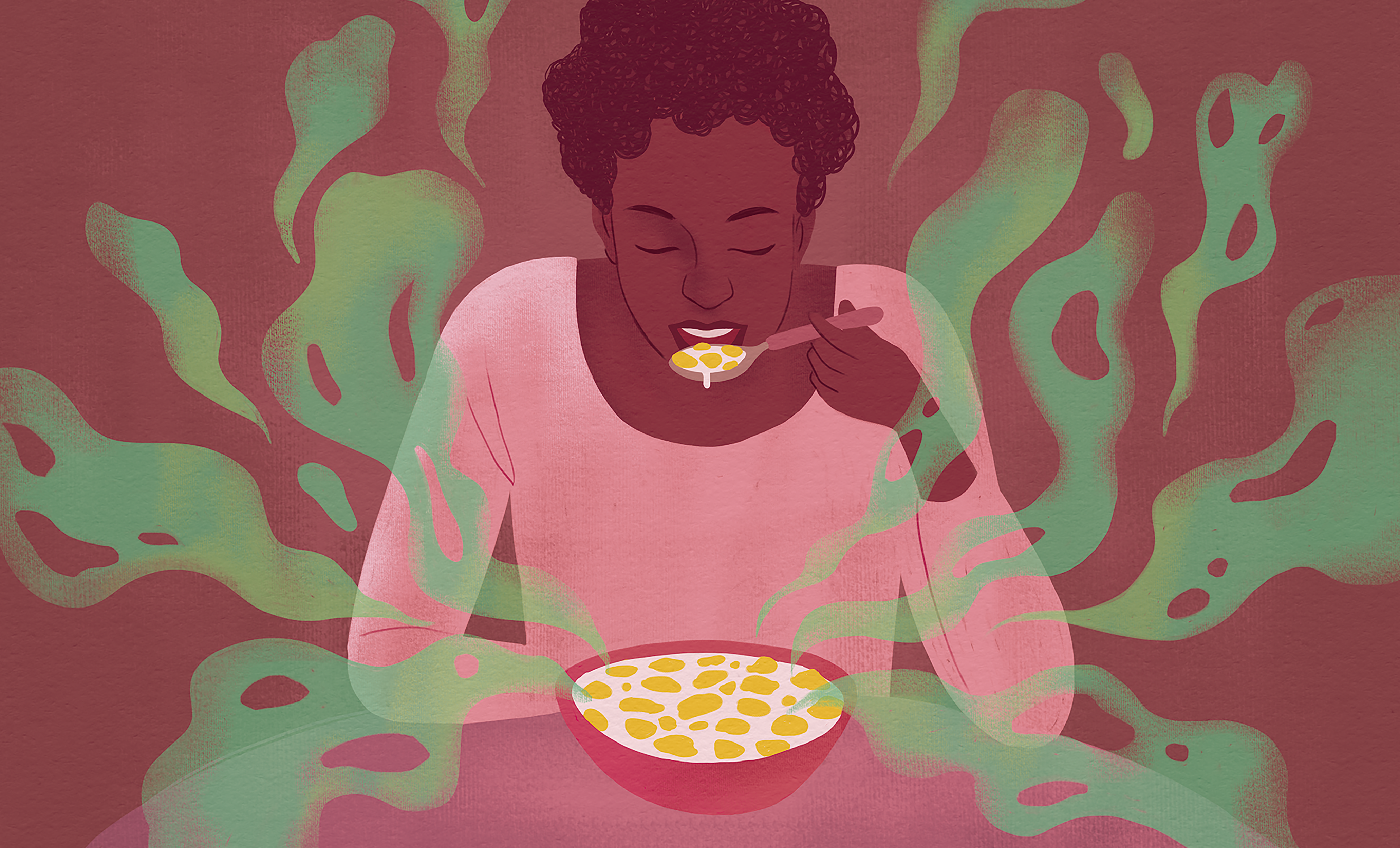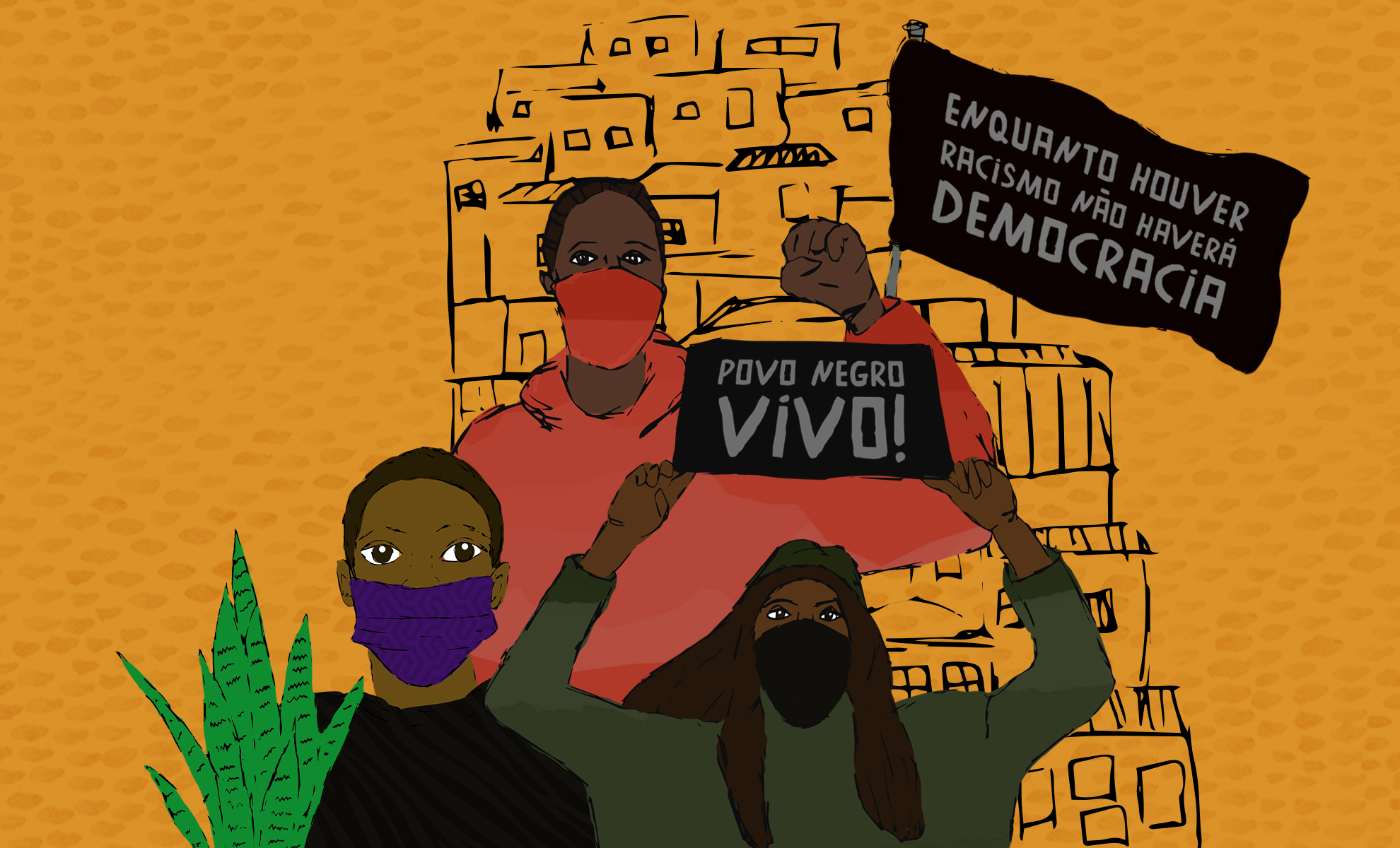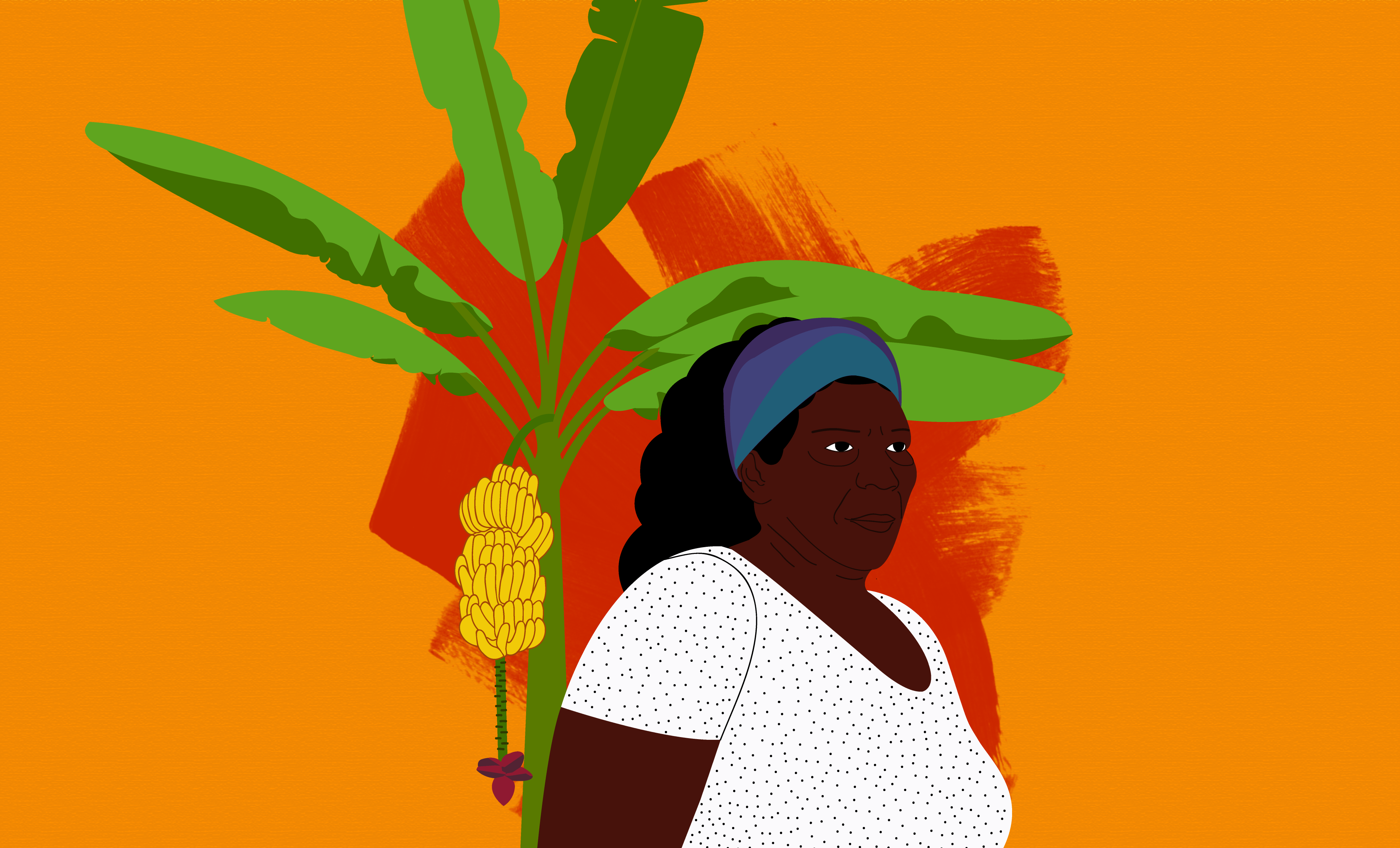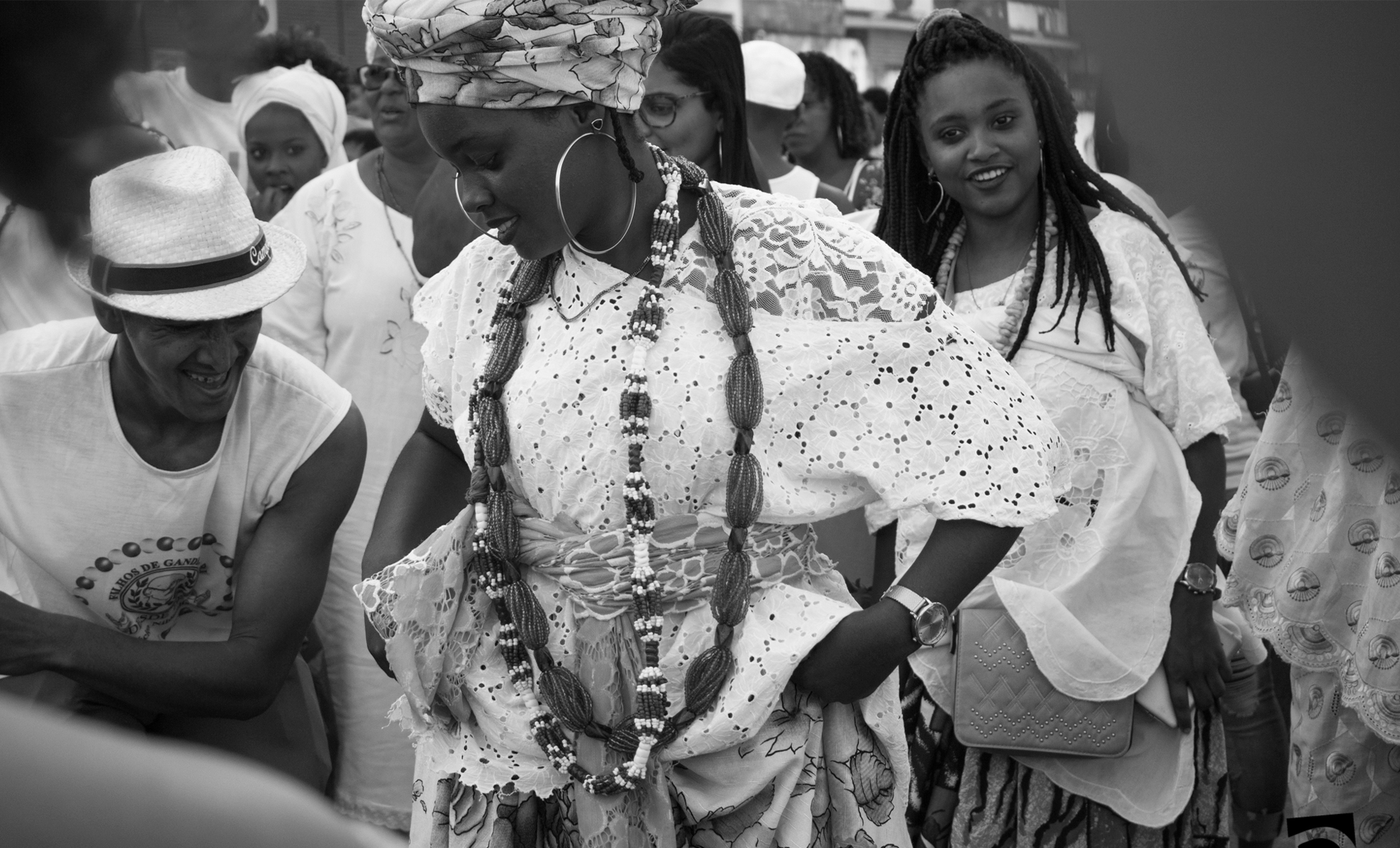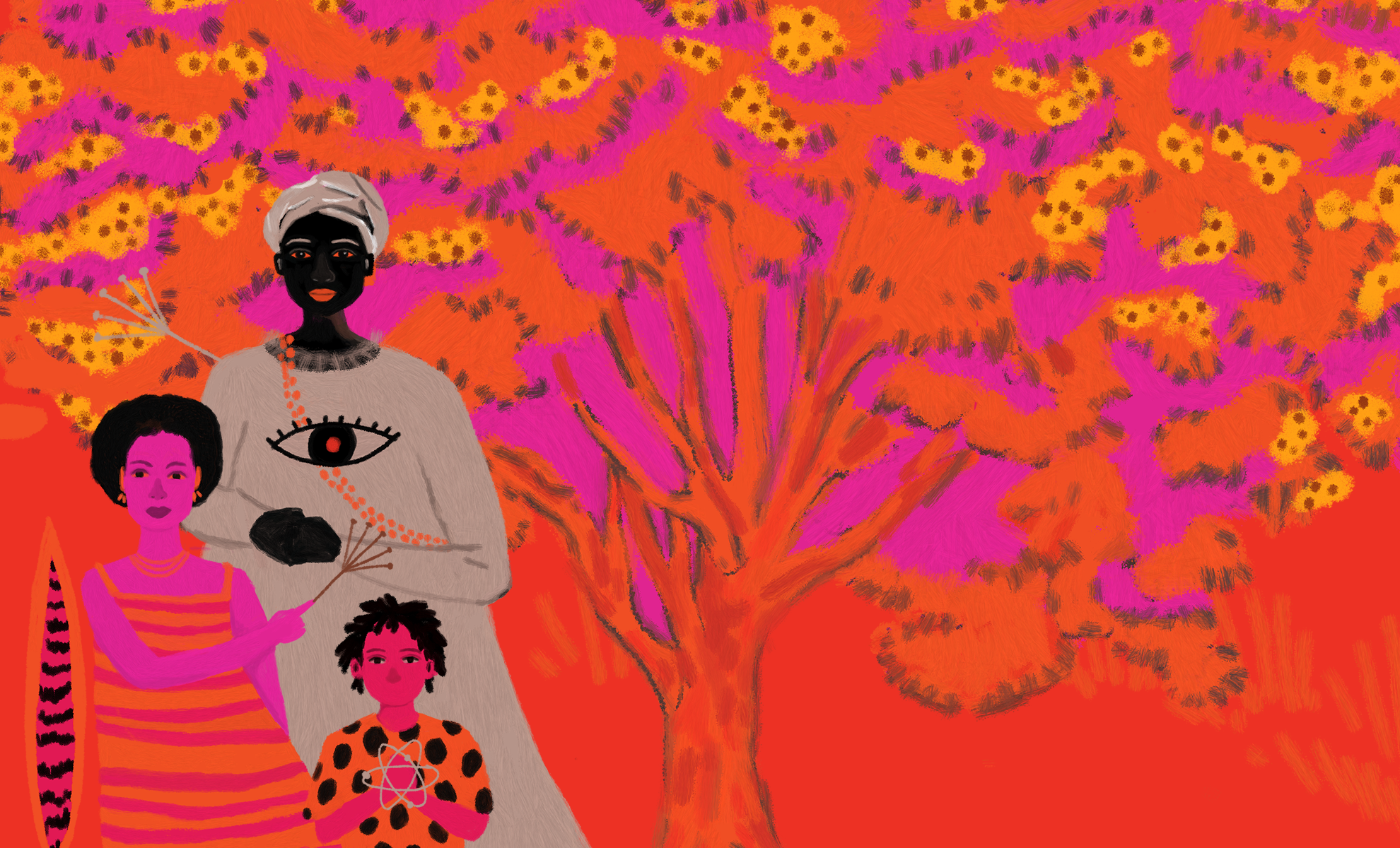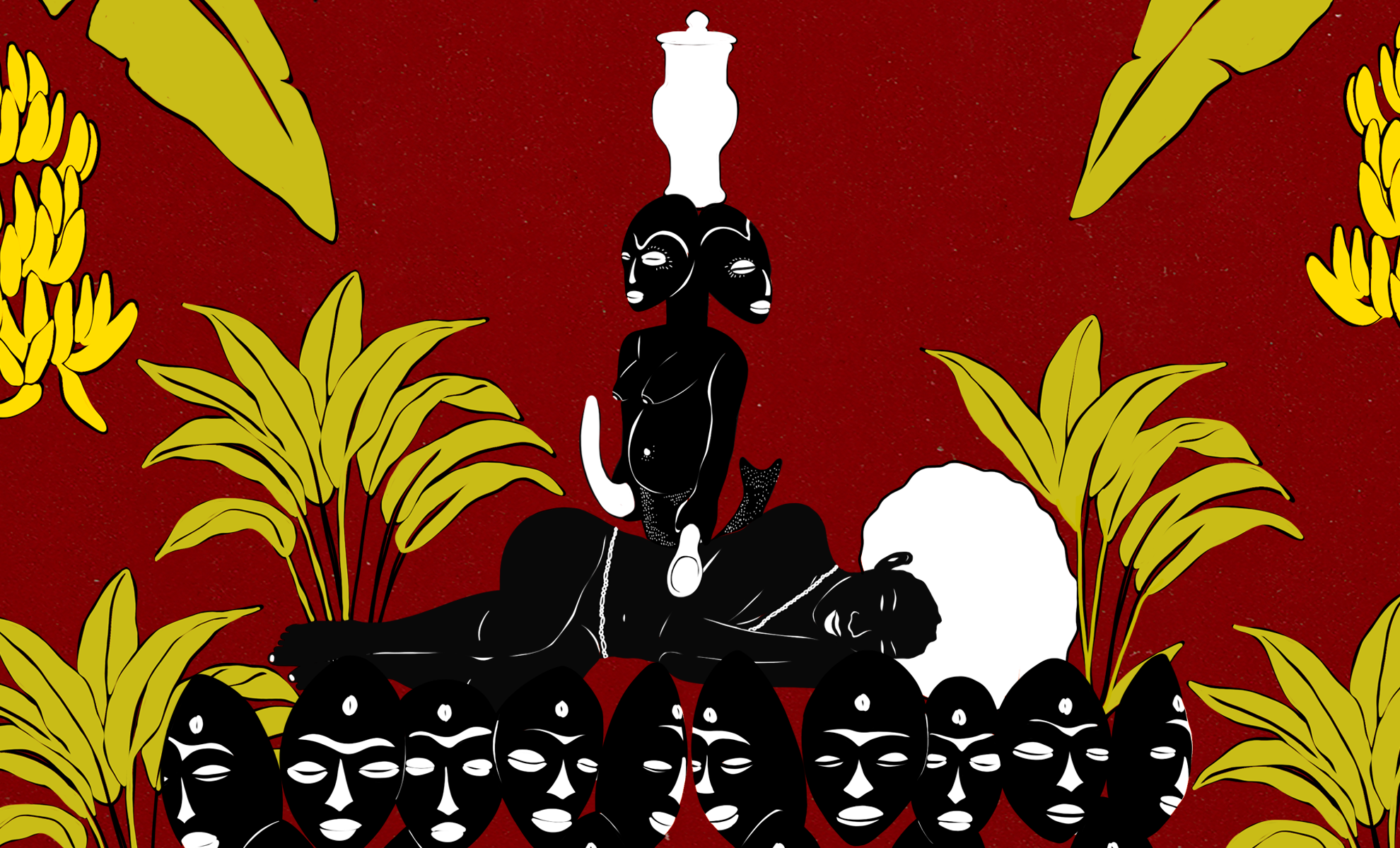Racial justice
The Racial justice program builds on the recognition of racism as a structural element of inequality in Brazil. Addressing these relationships means dismantling the systems of discrimination that perpetuate and deepen them, continually upheld by the myth of racial democracy.
Learn more about this program’s donations.
The program supports organizations and initiatives based on five strategic objectives:
-
Consolidating an integrated system of affirmative actions aimed at overcoming inequalities
In the Brazilian context, socioeconomic inequalities persist as a legacy of the enslavement of black people, reproduced through mechanisms of racialized institutional exclusion that are continually reinforced by the lack of access to rights such as quality education, comprehensive healthcare, decent work, property, and means of production. Disparities in access to social goods create rigid hierarchies in which white men occupy the top of the income pyramid, while Black women are concentrated at the bottom, with limited prospects for upward mobility.
Affirmative actions developed and expanded over the recent decades have enabled consistent changes in this scenario, even though they have faced ongoing threats of setbacks due to political and ideological pressures against the promotion of racial justice. Following the success of the Affirmative Action Law in higher education, there is a growing need to continuously improve its mechanisms, impacts, and updates, as well as to expand policies for quilombola students and incorporate the logic of affirmative actions into other areas such as elementary and high school education, the labor market, public service, diplomacy, and the justice system.
Ibirapitanga supports initiatives that secure student retention in higher education, improve access of quilombola students to quota policies, and address the implementation of monitoring and evaluation mechanisms for affirmative action policies.
-
Strengthening Black movements and leadership to influence power structures
Slavery and racism laid the foundation of a national project marked by exclusion, subjugation, and violence against the Black population. Its continuity is ensured by the distortion of formal representation of Black people in various spheres of social and political life.
To overcome this exclusionary nation-building project, it is necessary to strengthen the presence of Black leadership in positions of power and decision-making, as well as to expand the influence of Black movements and organizations, which are crucial to shaping effective public policies aimed at addressing persistent historical inequalities. The political representation of Black people strengthens democracy by ensuring that the perspectives of 56% of the population are considered in policymaking and decision processes.
Ibirapitanga supports initiatives that expand the advocacy capacity of Black movements and leaders, strengthen State’s commitment to protecting Black leaders involved in addressing violence, and improve legal mechanisms that promote Black political representation.
-
Valuing Black memory by strengthening Afro-Brazilian symbolic production infrastructure
The construction of a selective and white-centered memory has historically obscured the central role of African people and their descendants in the building of Brazilian society, erasing their experiences from the country’s dominant social imaginary. This process has been reinforced by archival, museological, and cultural heritage preservation systems in Brazil, all structured around a colonial logic that underrepresents the African and Afro-Brazilian legacy, as well as by the absence of public policies coordinated around memory.
From a Black perspective, memory functions as a dynamic resource in which history is not only revisited but also recreated from the present, shaped by movements addressing racial issues. Producing and challenging memory in relation to Brazil’s history — through the experiences and recollections of the Black population and its social movements — is a powerful and sensitive path towards promoting racial justice.
Ibirapitanga supports initiatives that strengthen community archives, Black memory structures and museums, as well as the development of public policies aimed at the protection and preservation of Black memory.
-
Consolidating policies of recognition, reparations and confrontation of racial violence
Conceptual ambiguities, limited presence in public debate, and a scarcity of reparatory actions with politically effective frameworks — combined with the Brazilian State’s and historical elites’ resistance to recognizing the legacy of slavery and its consequences — have hindered the development and advance of reparation policies. This contributes to the continued reproduction of racism in Brazil.
Racial violence, which disproportionately affects the Black population and manifests in various ways — such as high homicide rates, religious racism, and obstetric violence — is a concrete expression of this reproduction. Strengthening Black communities’ historical memory and resistance strategies as tools to denounce violence, as well as to demand reparations, is essential to building effective racial justice.
Ibirapitanga supports initiatives to strengthen strategic litigation, advocacy, and research in favor of reparation policies for the Black population, including the development of policies to address the cases of Black families and territories affected by State violence.
-
Strengthening the research and communications fields by centering racial issues
Beyond the fundamental actions driven by Black movements, confronting racial issues must be at the center of concern for a society that is racially divided at its roots.
The knowledge production through studies and research, as well as the dissemination of information about racism, the history of the Black population, and their contributions, is essential for deepening the understanding of racial inequalities and their expressions across different spheres of society. In this context, it is necessary to develop communication strategies and build counter-narratives that respond to the current challenges that racial justice agendas face in Brazil.
Ibirapitanga supports initiatives to consolidate an anti-racist journalism and media ecosystem with broad reach and influence in public debate and mainstream media; to strengthen research centers focused on racial issues in Brazil; and to expand civil society’s capacity to confront anti-identitarian, fundamentalist, and conservative discourses and agendas.
Latest grants
See all-
Racial equity
Coletivo Nzinga
O Coletivo N'zinga, localizado em Belo Horizonte, é uma organização feminista negra que luta contra a discriminação racial e de gênero, buscando a inclusão socio-política e econômica das mulheres negras. Fundado em 1986, o coletivo atua em diversas áreas, como combate ao racismo, saúde sexual e reprodutiva, direitos reprodutivos da mulher negra e violência de gênero, com recorte étnico-racial.Saiba mais-
Fortalecimento Institucional do Coletivo Nzinga de Belo Horizonte
About the grant
Apoio para viabilizar o projeto “Mulheres negras fortalecidas e articuladas por reparação e bem-viver”, que busca enfrentar os efeitos do racismo estrutural e da desigualdade de gênero sobre as mulheres negras em Minas Gerais. Por meio do apoio, será possível estruturar a sede do coletivo em Belo Horizonte, contratar equipe estratégica e desenvolver ações formativas e de mobilização nos dez territórios do estado, especialmente em regiões com menor acesso à informação. O projeto prevê ainda a realização do 2º Encontro Estadual de Mulheres Negras e a articulação da participação mineira na 2ª Marcha Nacional de Mulheres Negras, marcada para novembro de 2025.
Value
R$ 150,000.00Duration
12 mesesYear
2025
-
